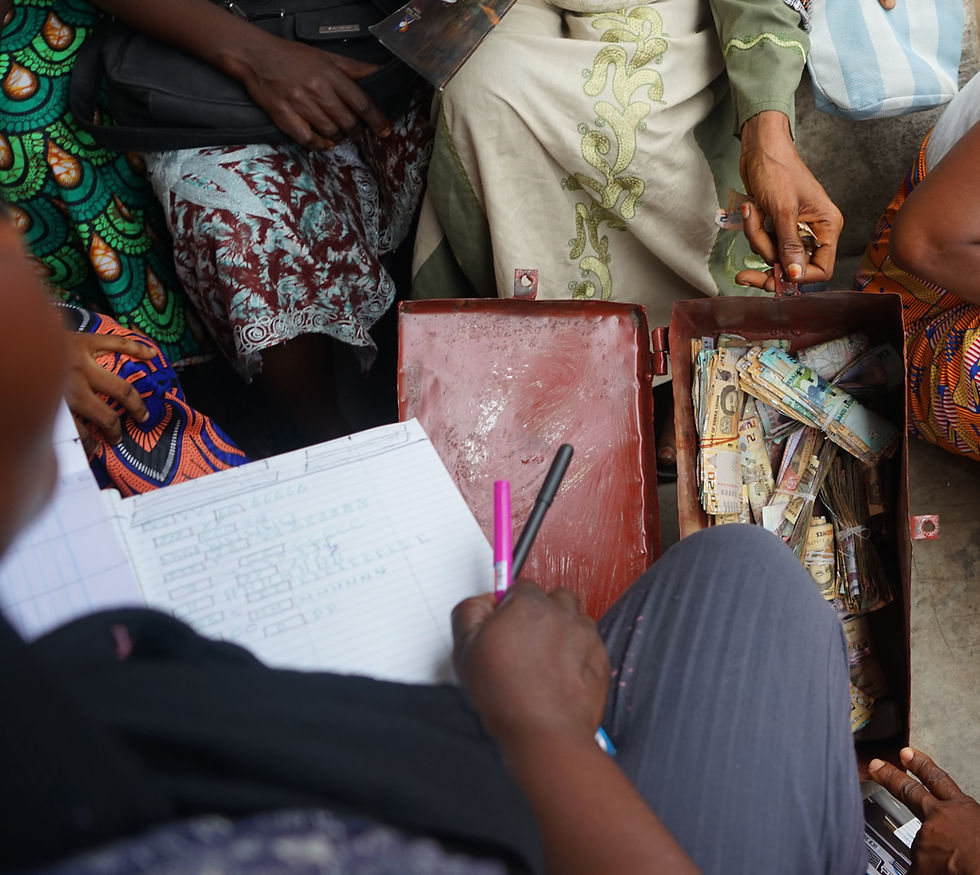Prosper’s savings banks – a new way to help build a better future
- ellenarnison
- May 12
- 2 min read
Working with women in disadvantaged communities in Sierra Leone and understanding the barriers to saving effectively, Prosper has developed a tailored savings bank model.

Community-based savings models like osusu and village savings and loan associations (VSLAs) have long helped women manage money, build resilience and support each other, but each comes with its own strengths and limitations.
Prosper’s savings banks (SBs) offer a new approach effectively combining the simplicity of osusu with the structure and accountability of a VSLA, while directly addressing the challenges of literacy, transparency and sustainability in group savings management.
The challenge: managing savings groups in low-literacy contexts
Managing a savings group can be difficult. Many groups struggle with:
Safeguarding cash
Tracking individual savings, loans, and repayments
Recording group decisions
Defining roles and responsibilities clearly
In most rural contexts, only one or two group members may be literate. This imbalance can lead to unintentional errors or even exploitation by those controlling the records. Without clear and transparent systems, which all members can easily understand, trust breaks down and groups risk collapse jeopardising members’ access to vital financial support.
The prosper solution: a hybrid model for greater transparency and inclusion
Prosper savings banks are designed to be a hybrid of osusu and VSLAs but adapted for communities where many participants are non-literate or semi-literate. The system retains the communal ownership and mutual support of established models, while introducing new tools to improve transparency, accountability, and sustainability.
Key features include:
Visual record-keeping: instead of relying on written ledgers, Prosper’s SBs use a colour- and symbol-based tally system that allows all members, regardless of literacy level, to see and understand the group’s financial activities. This dramatically reduces opportunities for mismanagement and builds trust within the group, as all members can easily check and control the management records and what the group is holding in cash.
Emphasis on inclusion and accountability: by giving all members the tools to monitor savings, loans, and repayments, Prosper’s SBs ensure that leadership remains accountable. This improves transparency and helps groups avoid the breakdowns that have undermined traditional models.
Facilitated decision-making: rather than imposing rules, Prosper’s facilitators guide members to make decisions that suit their local context such as interest rates, loan terms and leadership structures. Groups are encouraged to reflect on the pros and cons of different approaches and to learn from the experiences of other communities.
Why this matters for women
For many women, especially those with limited formal education or no access to traditional banking, Prosper’s savings banks provide a practical and empowering alternative to conventional financial systems.
These community-based banks enable women to:
Save money securely, without the risks of storing cash at home
Access small loans in times of emergency or to grow a business
Track and understand their savings and loans, even without formal literacy
Take part in financial decision-making within their groups
By combining the trusted familiarity of osusu with the structured, savings and loan-based features of VSLAs while eliminating the barrier of written record-keeping, Prosper’s SBs offer a model tailored to women’s realities. They help women build not just savings, but lasting confidence, financial resilience, and independence.



